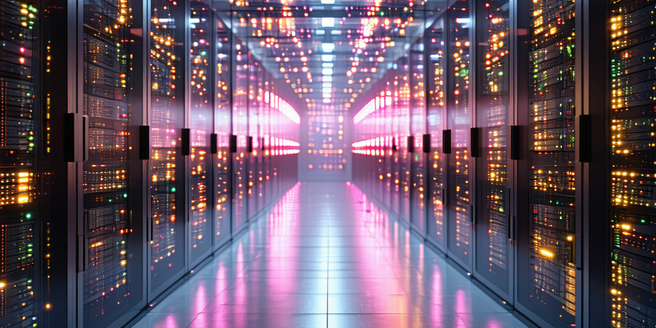
Network Segmentation Techniques
Network segmentation involves dividing a network into smaller segments to enhance security and performance. This practice isolates issues, simplifies access control, and limits the reach of potential threats by containing traffic within designated areas. Segmentation can be tailored based on department, location, or application, helping IT teams to manage resources effectively and meet regulatory compliance by securing sensitive data. Benefits include improved security and performance, with reduced risk of breaches and unauthorized access, and more efficient traffic management. Techniques like VLANs and microsegmentation further optimize these benefits by segregating network traffic and enforcing granular security measures, helping to prevent lateral movement of threats and ensuring only necessary connections are allowed. Adopting best practices such as defining clear objectives, using layered security techniques, and continuously monitoring segment activity, is essential for maximizing network segmentation’s advantages and maintaining a secure, compliant IT environment.

Wireless Earbuds For Frequent Travelers
Choosing the right wireless earbuds for travel enhances your journey by ensuring comfort, excellent sound quality, reliable connectivity, and durability. Key features for travel earbuds include long battery life, quick-charging abilities, active noise cancellation, and a compact, lightweight design. These attributes provide uninterrupted listening, drown out ambient noise, and make packing easy. Noise cancellation offers tranquility in noisy environments, such as planes and trains, by counteracting external sounds for a peaceful audio experience. Long-lasting battery life reduces the need for frequent charging, ensuring continuous functionality on long trips. Compact earbuds fit easily in luggage, offering a space-saving solution for travelers. By focusing on these elements, you can choose earbuds that significantly enhance your travel experience.
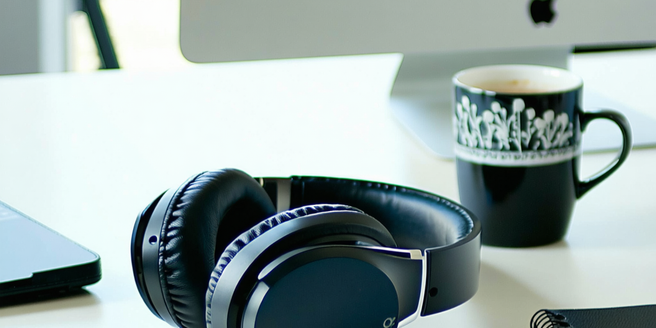
User Reviews Of Noise-canceling Headphones
Noise-canceling headphones use active noise control technology to minimize ambient sounds, enhancing the listening experience in noisy settings like airplanes and busy offices. Consider factors such as noise cancellation levels, comfort, battery life, sound quality, and design when choosing headphones. Top-rated models include Sony WH-1000XM4, Bose QuietComfort 35 II, Sennheiser Momentum 3, Bowers & Wilkins PX7, and Anker Soundcore Life Q30, each offering unique benefits. User reviews highlight the importance of comfort, build quality, and brand reputation. Common issues like performance degradation, connectivity problems, and battery concerns can often be resolved through adjustments or updates.
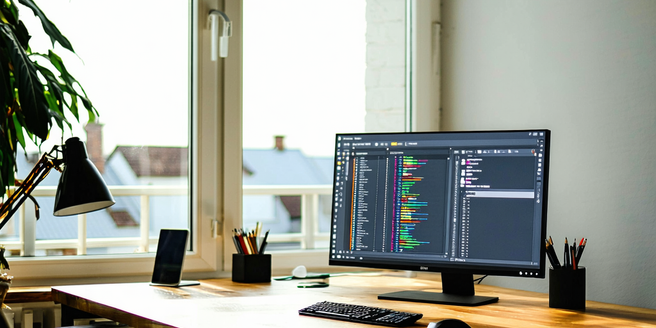
Goal-setting Tools For Remote Achievements
Clear goals are essential for productivity in remote work, providing direction and bridging communication gaps. They enhance accountability, motivation, task prioritization, and outcome measurement, instilling a sense of belonging in teams. Choosing the right digital tools is crucial for tracking progress, ensuring transparency and accountability with software like task management and communication platforms. Integrating goal-setting into daily remote routines enhances productivity by aligning focus and establishing purpose. Collaboration tools are vital for achieving team-oriented goals, offering platforms for communication and real-time feedback, vital for teamwork and innovation. Overcoming challenges in virtual goal setting involves establishing clear communication, utilizing collaborative tools, and fostering a strong team culture, ensuring goals are clear, achievable, and continuously measured.
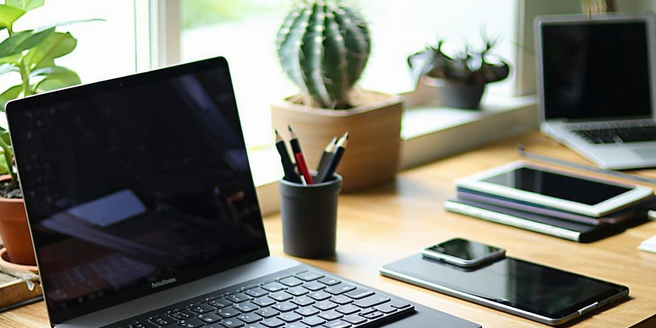
Wireless Keyboards For Flexibility
Wireless keyboards offer notable flexibility and convenience for users seeking a clutter-free workspace. These devices allow easy connectivity across multiple gadgets, including laptops, tablets, or smart TVs, offering versatility for work and entertainment. They are powered by long-lasting batteries, reducing recharging hassles and offering ergonomic positioning to prevent strain. Key features to consider when purchasing include reliable connectivity options like Bluetooth, customizable keys for productivity, and ergonomic designs for comfort. Popular brands such as Logitech and Microsoft are known for their innovative and user-friendly designs, while Apple’s options pair seamlessly with its devices. For gamers, brands like Razer and Corsair offer specialized keyboards with customizable backlighting. To optimize your experience, ensure a stable connection, customize settings, and maintain cleanliness. Regular maintenance, including firmware updates and battery care, can prolong the keyboard's life and enhance performance.

Green Tech Initiatives
The global shift towards renewable energy solutions is driven by the increasing demand for clean energy and stricter emissions regulations, with solar, wind, and hydroelectric power leading the charge. Advancements in technology and decreasing costs make these solutions accessible, while also promoting economic growth through job creation. Sustainable agriculture is advancing with precision farming, vertical farming, and hydroponics, aiding in efficient resource management and conservation of natural habitats. Smart city technologies enhance urban living by optimizing energy, transport, and resource use through IoT and AI, promoting sustainability. Green technology in transportation is revolutionizing travel with electric vehicles, renewable fuels, and improved infrastructure for non-motorized transport. Energy-efficient homes are reducing carbon footprints with smart technologies, solar panels, and water management systems. Government policies, including subsidies and tax incentives, are vital in promoting the adoption of green technologies and advancing research and development in this sector.
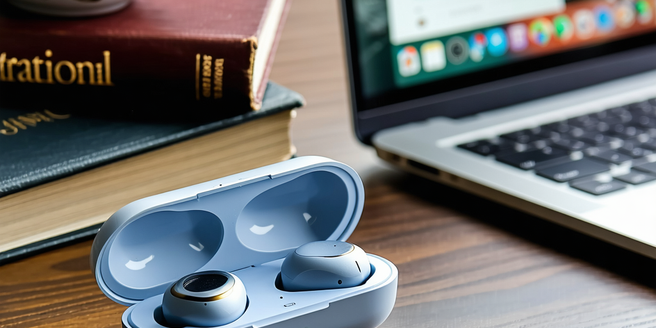
Language Translation Earbuds
Translation earbuds utilize cutting-edge technology to offer real-time language translation by harnessing sophisticated algorithms, machine learning, and natural language processing. Key features to consider in these devices include superior sound quality, extended battery life, and multi-language support. They also offer noise-cancellation and ease of use, enhancing communication by breaking language barriers and promoting cultural exchange. Translation earbuds greatly impact global travel, offering improved cultural immersion and safety. Future innovations are expected to enhance accuracy, processing speed, and device comfort, potentially incorporating augmented reality for visual translations. These advancements position translation earbuds as essential tools in an increasingly connected world.
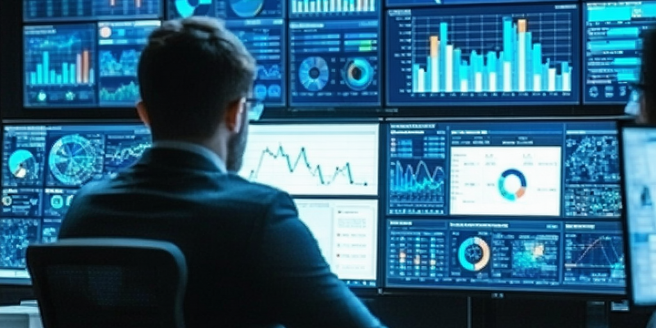
Top Features Of Collaboration Platforms
User-friendly interface design is crucial for the success of collaboration platforms, emphasizing ease of use through intuitive navigation and clear commands. Real-time communication tools, such as instant messaging and video calls, are vital for facilitating immediate interaction, bridging geographical gaps, and enhancing team efficiency. Project management and task tracking features aid in organizing and monitoring workflows through tools like Kanban boards and Gantt charts. File sharing and storage capabilities support seamless document management and accessibility, particularly for remote teams. Robust security and privacy measures protect sensitive data and build user trust. Integration with third-party applications enhances platform functionality and convenience.

Smartphone Usage Control
In today's digital era, managing screen time is essential for maintaining a healthy lifestyle. Excessive screen time is linked to health issues like eye strain and disrupted sleep, and it's important to set boundaries to promote physical activities and mental well-being. Parents play a crucial role by guiding children on the value of face-to-face interaction and managing screen time. Parental controls are effective in ensuring safe and appropriate smartphone usage for children by restricting content, limiting screen time, and monitoring activities. Numerous apps can help regulate smartphone use by providing insights, setting limits, and tracking progress, promoting healthier habits. Balancing connectivity and mental health is key, with strategies like setting boundaries and encouraging offline activities improving well-being. Creating tech-free zones at home enhances family interactions and supports better sleep habits. The future of smartphone usage management looks promising with advancements in tools and apps, offering personalized recommendations for healthier digital habits and more sophisticated parental controls.
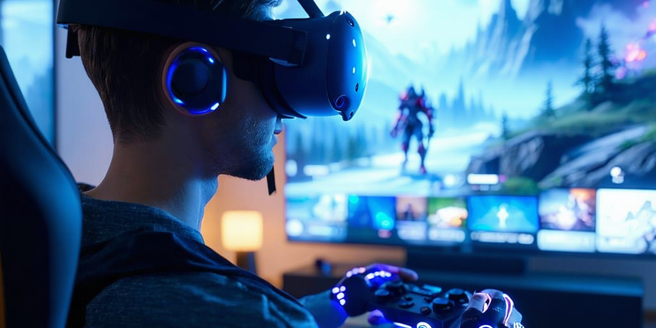
Innovative Vr Headsets
Discover the evolving world of VR technology, where companies are advancing immersive experiences through enhanced graphics, eye-tracking, and haptic feedback. Standalone VR headsets now offer powerful, accessible options that eliminate the need for PC tethering, appealing to a broader audience. Beyond gaming, VR is revolutionizing sectors like healthcare, education, and real estate with applications in surgical training, immersive learning, and virtual tours. Modern VR headsets present features like high-resolution displays, wireless connectivity, and advanced controllers, elevating user experiences. The impact of VR on gaming is profound, introducing unique mechanics and fostering realistic multiplayer environments. Competitive brands like Oculus, HTC Vive, PlayStation VR, and Valve Index offer devices with varying features and performance levels, meeting diverse user needs and preferences. As VR technology matures, barriers like cost and motion sickness diminish, paving the way for wider adoption and integration into everyday life.
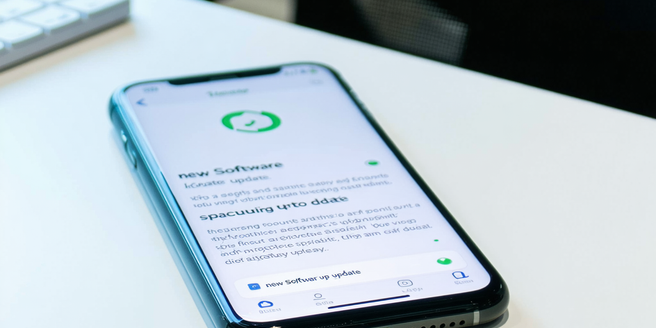
Mobile Device Security Measures
Mobile device security is crucial as these devices store sensitive personal and corporate data and are frequently targeted by cyber threats. Effective security measures include regular updates, strong authentication, and user education. Common threats such as malware, Man-in-the-Middle attacks, and device theft highlight the need for vigilance. Essential smartphone security features include biometric authentication, encrypted communications, and secure app stores. Best practices for securing mobile devices involve using strong passwords, backing up data, installing apps only from trusted sources, and enabling full-disk encryption. Emerging trends like AI, blockchain, and 5G connectivity promise more advanced and integrated mobile security solutions in the future.
